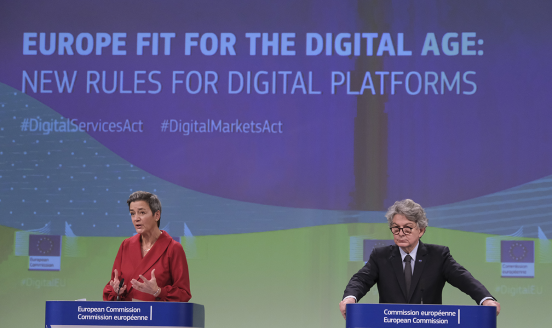China’s catching up on competition policy enforcement
Foreign business is increasingly realising that China has antitrust laws, and is not too shy to use them. The Glencore/Xstrata merger in the spring wa
Policy Contribution 'The Dragon awakes: Is Chinese competition policy a cause for concern?'
Foreign business is increasingly realising that China has antitrust laws, and is not too shy to use them. The Glencore/Xstrata merger in the spring was cleared only with conditions imposed by the Chinese Ministry of Commerce (MOFCOM). In August, the Chinese National Development and Reform Commission (NDRC) imposed a record €82 million fine on milk powder producers for a price-fixing conspiracy. The Chinese authorities are also taking more decisions. They issued only one in 2008, compared to 34 European Commission decisions concerning mergers that were not cleared unconditionally, abuse of market dominance and major cartel cases. In 2012, the figures were 16 for China and 23 for Europe.
For foreign investors, this raises the question of whether more robust Chinese antitrust enforcement is not simply a way for China to promote its domestic industries at the expense of foreign competitors. An analysis of the data shows that they might be half right.
China's Anti-Monopoly Law (AML), adopted in 2007, is largely compatible with the European competition policy framework. The AML however gives Chinese authorities the power to include industrial policy considerations in their case assessments, and the authorities have duly used this power in merger decisions. However, the same does not seem to hold for antitrust control.
Like in Europe, most merger applications received by MOFCOM are cleared with no conditions. But MOFCOM has blocked one merger and required commitments in 20 others. Those mergers all share one peculiarity: they all involved foreign companies. This is surprising. The rate of merger activity in China is comparable to that in Europe, but the majority (about 60%) of the mergers cleared with conditions by the European Commission involve only European companies. There are two possible reasons why in China commitment decisions only concern foreign companies. First, domestic companies might not notify even if they are required by law to do so (only 14% of the dealt with by MOFCOM concern domestic deals). Second, MOFCOM's commitment decisions often aim to protect domestic competitors from the potential increase in the competitiveness of the merged companies. Companies are sometimes even prevented from pursuing a certain line of business (for example Wal-Mart/NiuHai) or from reducing their input costs (Marubeni/Gavilon). Synergies and efficiency gains might allow merged companies to out-perform Chinese competitors. China's competition authorities appear to want to limit this, rather than to enable market conditions that will result in lower prices and better quality products for Chinese consumers.
By contrast, antitrust enforcement has been used mostly as a weapon to fight inflation. The NDRC’s job is to keep prices under control, especially in key sectors for mass consumption. It is no wonder that major cartel cases have concerned rice noodles, garlic and mung beans and infant milk formula. China's antitrust authorities have not attempted to protect domestic companies; rather, they have tried to protect domestic consumers, as do most antitrust authorities. There has been no evident bias against foreign companies: only two major cartel investigations (flat-screen LCD and milk powder) have also affected foreign companies. In more than 30 cases in which the Chinese authorities have applied sanctions, only domestic companies have been involved. However, the Chinese authorities impose very low sanctions: in the LCD and milk powder cases, fines were on average equivalent to 0.2% of the companies’ global turnover. In Europe, fines in proportion to global turnover are on average ten times higher. With no case selection bias and low fines, the claim that Chinese antitrust disguises industrial policy seems unsubstantiated.
China should transfer its approach to antitrust enforcement to merger control. Making consumer welfare the key driver for assessment of mergers and apply the same treatment to companies regardless of companies’ origin would align China with the standards of assessment implemented by the majority of developed countries and would benefit the Chinese economy; by protecting competition instead of protecting competitors, Chinese authorities would increase Chinese companies’ incentives to be efficient. In the long term, everybody would profit from such a policy.
Convergence of international antitrust enforcement is possible and highly desirable to limit distortions in global competition. Certainty and uniformity in the application of competition rules is a key driver for investment. Bilateral trade talks between representatives of China and the European Union were just initiated last week. It is a good occasion to bring competition policy to the negotiating table.
Policy Contribution 'The Dragon awakes: Is Chinese competition policy a cause for concern?'



